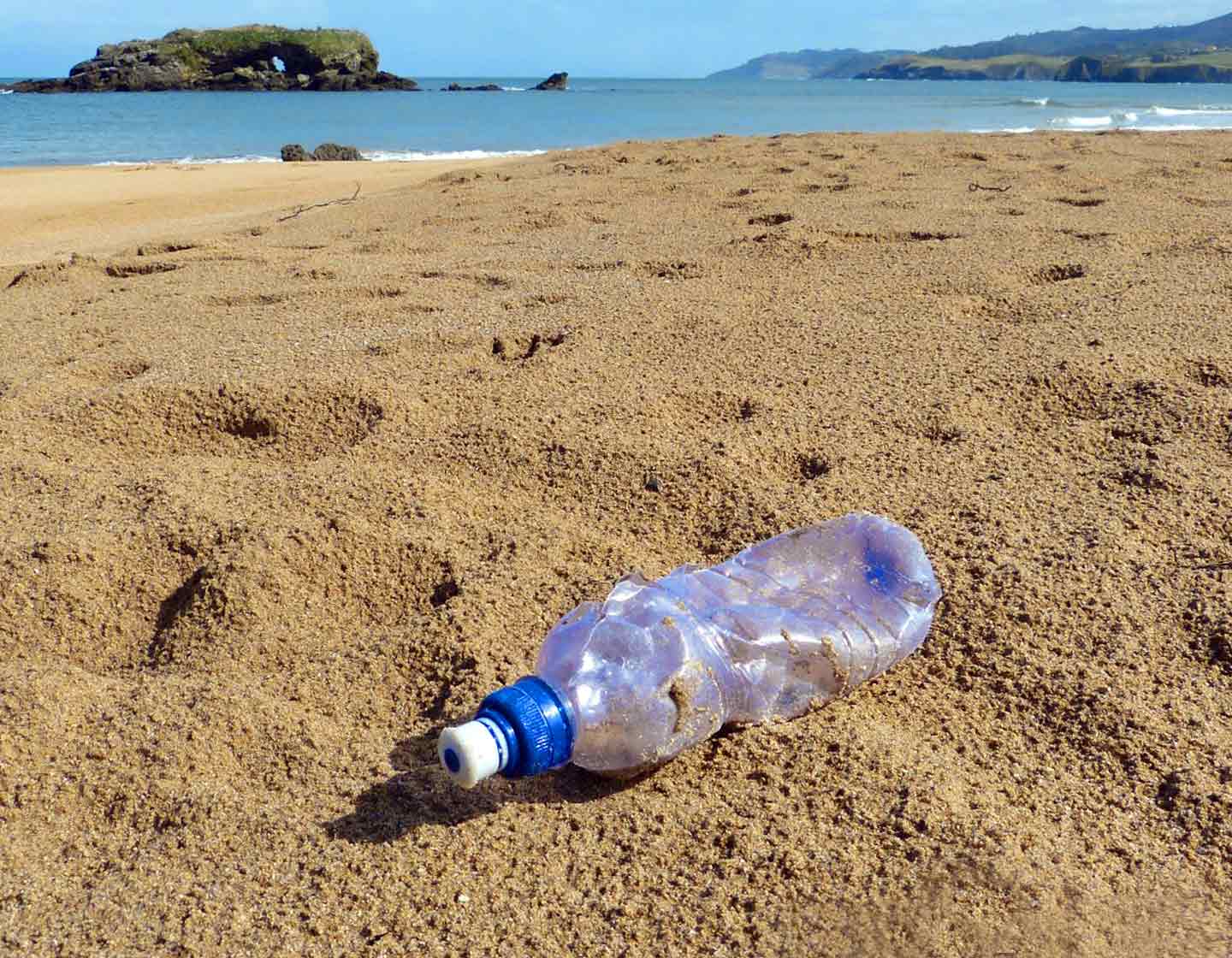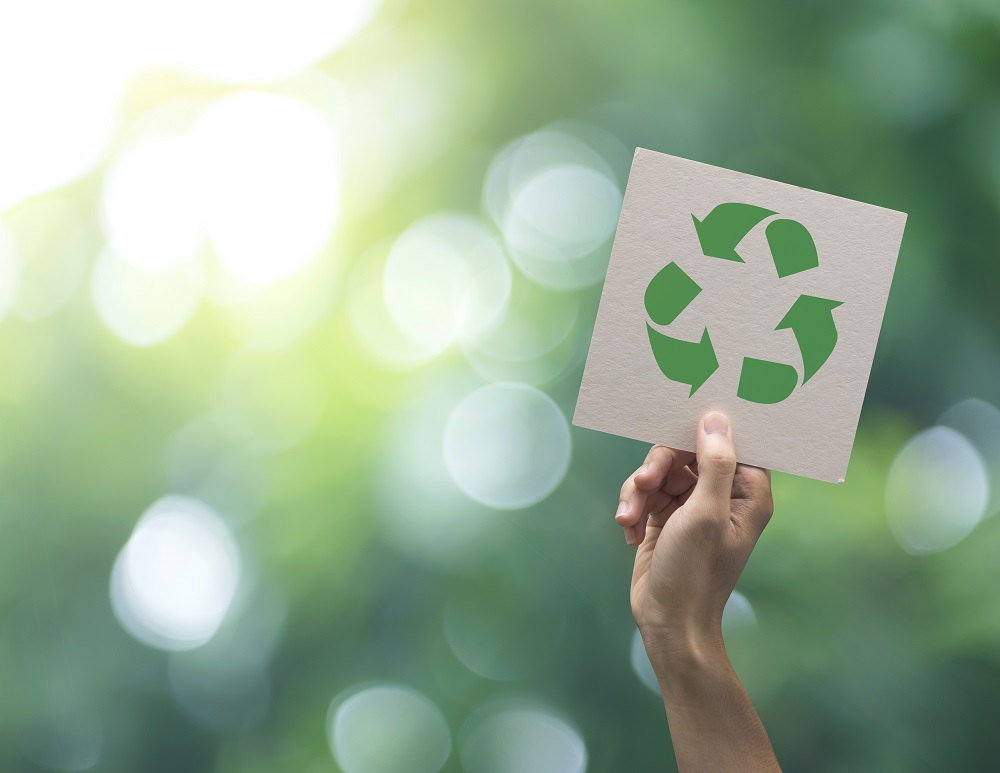Adidas finds a good use for 1.8 million used plastic bottles
Adidas has highlighted its global commitment to recycling by delivering a sustainable football field made from 1.8 million plastic bottles.
A traditional American football turf field employs an abundance of virgin plastics and re-ground rubber for cushioning and longevity so to underscore the sports company’s strategy to reduce pollution, it sourced plastic bottles from remote islands, beaches, coastal communities, and shorelines.
Adidas has committed itself end the use of all virgin polyester in its shoes and apparel by 2024 – and the sustainable football field was a mark of this pledge, partnering with Miami Edison High School on the project.
Plastic waste
40,000 lbs of plastic waste was washed and treated before conversion to the infill used to build the artificial field. Infill looks like pellets, as is an essential element in constructing a quality football field – ensuring playability, performance and safety. It provide good traction for the players, and serves as a cushion when the fall, dive or slide.
Cameron Collins, the North America director of football at Adidas, said:
“We believe that through sport we have the power to change lives, and this field is a demonstration of our taking action on that belief. More than a place for these young athletes to play, it’s a reminder of our collective responsibility to end plastic waste.”
James Carnes, vice president of global brand strategy for Adidas said:
“It’s no secret that the health of our oceans—and planet at large—is at risk. Experts project roughly 55% of plastic resides in landfills or natural areas, damaging ecosystems and threatening animal life. We’re doing our part to turn the tide and create change by eliminating all virgin polyester by 2024.”
Adidas has also partnered with Parley to create a limited-edition capsule collection featuring football cleats, running footwear, and training apparel made with ocean plastic, using sustainable fabric and technology to help reduce sportswear’s negative environmental impact.

War on plastic
The unveiling of the sustainable football field was also marked by a 7-on-7 tournament featuring local male and female athletes. The custom multi-sport scoreboard highlighted key facts about the field’s composition and gave practical tips on how local people can join in the war on plastic.
Players at the 7-on-7 took a pledge to avoid single-use plastic bottles, learning the impact of plastic waste on the environment through an interactive video game created specifically for the tournament. After completing the game, they were given a code to collect sustainable products including the limited-edition Adizero cleats constructed with Parley Ocean Plastic. Recycling bins were also installed across campus to help students keep their commitment to ending plastic waste.
Plastic is a core element in most sportswear. At the same time, the expert forecast is that in 30 years, there will be more plastic than fish in our oceans so there is a compelling need to find less damaging ways to produce kit, with far less plastic ending up on beaches, in the oceans and rivers. One study indicated that 90% of seabirds had consumed some form of plastic waste.
Adidas makes over 400 million pairs of shoes a year so is trying to stop some of that plastic before it reaches the ocean. Five years ago, Adidas got serious about plastic pollution, partnering with environmental group Parley for the Oceans with the aim of transforming marine pollution into sportswear. Last year, for example, it made 11 million pairs of shoes with recycled ocean plastic, more than double it had made in 2018. This has stopped 2,549 tonnes of plastic from reaching the sea.
Recycled trainers
The company is also going through extensive public trials of its “endlessly recyclable” UltraBOOST DNA LOOP trainer. The trainer is entirely made from a single material – thermoplastic polyurethane (TPU) – and is assembled using heat rather than glue. When they wear out, the trainers can be returned to Adidas and remade into new trainers.
James Carnes advises:
“Importantly, the whole concept of ‘Made to be Remade’ will only work if we can complete the loop, and we don’t control every part of that process. The return of the shoes is the most crucial factor in making this a success so the specially created digital experience for this release is designed to test and refine the process we have before we take this out to the wider world.
“Our ambition is to end plastic waste. Through our three-loop strategy, we want to make sure that more and more of the products we create are either made with recycled material, made to be remade or made with natural materials.”

Sustainable products
At SaveMoneyCutCarbon, we’re passionate about helping our customers to help the planet. We all know that every household puts a significant amount of single-use plastic in the bins but it’s been hard to find sustainable alternatives that do the job just as well if not better.
Our sustainable products range is the answer – from beeswax wraps to laundry eggs, and bamboo pet bowls to bamboo kitchen roll, you can select everyday-use products to help reduce single-use waste. That’s good news for the planet and your pocket!
You can choose a sustainable lifestyle with our starter kits with recurring deliveries – with easy eco swaps, handpicked by us, packaged sustainably and delivered to your door.